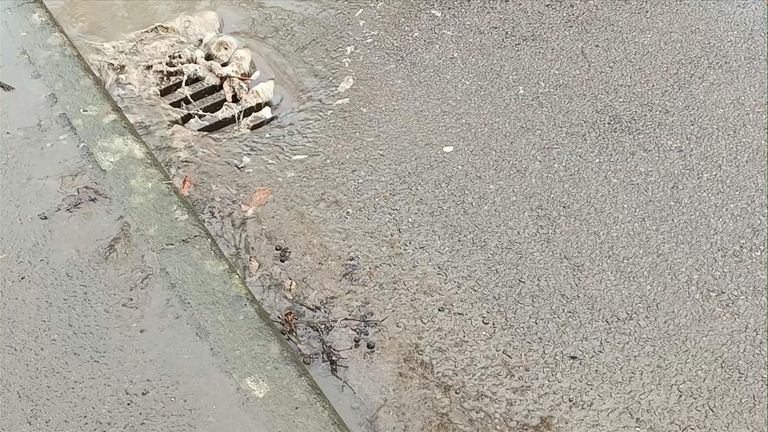Spills of raw sewage into England's rivers and seas reached their worst on record last year.
Discharges by water companies of untreated sewage doubled from 1.8 million hours in 2022 to a record 3.6 million in 2023, according to new Environment Agency data.
The number of individual spills also soared by 54% - from 301,000 in 2022 to 464,000 in 2023.
Water companies are expected to blame the huge jump on last year's wet weather - 2023 was England's sixth wettest on record - following the drought during 2022.
Because rain and sewage wash down the same pipes in the UK, sewers are fitted with so-called storm overflows, which act as safety valves during heavy rain, to stop sewage backing up into people's homes.
Storm overflows are only supposed to be used in exceptional circumstances - but there is growing evidence that water companies have used them routinely, including on dry days.
The rise will also be partly attributed to increased surveillance, as 100% of overflows have now been fitted with monitoring devices, up from 93% in 2022.
The volume of sewage spills is the worst since comparable records began in 2019, and likely the worst at any point.
Campaigners say the pumping of sewage into waterways is the symptom of chronic underinvestment by water companies.
Amid public anger at widespread water pollution, the industry recently fast-tracked £180m of investment.
Be the first to get Breaking News
Install the Sky News app for free


Water companies also plan to invest £10bn by the end of this decade, which they say would reduce the number of spills by 150,000 incidents a year.
The Environment Agency recently launched a whistleblowing email address for water company workers, though there are concerns about how robust or anonymous it is.



